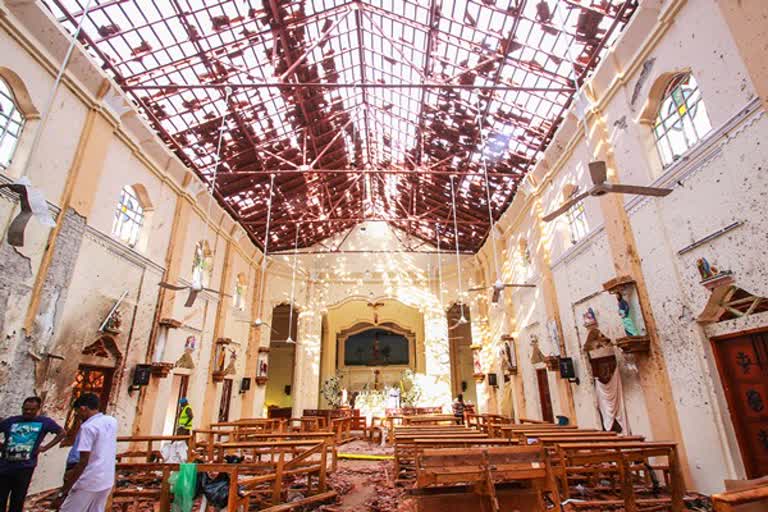Colombo:Police in Sri Lanka said Monday the investigation into the Easter Sunday bombings will examine reports that the intelligence community failed to detect or warn of possible suicide attacks before the violence.
The nine bombings of churches, luxury hotels and other sites was Sri Lanka's deadliest violence since a devastating civil war in the South Asian island nation ended a decade ago.
Police spokesman Ruwan Gunasekara said Monday the death toll had risen overnight to 290 dead with more than 500 wounded.
Two government ministers have alluded to intelligence failures.
Telecommunications Minister Harin Fernando tweeted, "Some intelligence officers were aware of this incidence. Therefore there was a delay in action. Serious action needs to be taken as to why this warning was ignored."
He said his father had heard of the possibility of an attack as well and had warned him not to enter popular churches.
And Mano Ganeshan, the minister for national integration, said the security officers within his ministry had been warned by their division about the possibility two suicide bombers would target politicians.
Gunasekara said the Criminal Investigation Department investigating the blasts will look into the reports.
Defence Minister Ruwan Wijewardena previously described the blasts as a terrorist attack by religious extremists, and police said 13 suspects were arrested, though there was no immediate claim of responsibility.
Wijewardena said most of the bombings were believed to have been suicide attacks.
The explosions mostly in or around Colombo, the capital collapsed ceilings and blew out windows, killing worshippers and hotel guests in one scene after another of smoke, soot, blood, broken glass, screams and wailing alarms.
Victims were carried out of blood-spattered pews.
"People were being dragged out," said Bhanuka Harischandra, of Colombo, a 24-year-old founder of a tech marketing company who was going to the Shangri-La Hotel for a meeting when it was bombed.
"People didn't know what was going on. It was panic mode." He added: "There was blood everywhere."
Most of those killed were Sri Lankans. But the three bombed hotels and one of the churches, St. Anthony's Shrine, are frequented by foreign tourists, and Sri Lanka's Foreign Ministry said the bodies of at least 27 foreigners from a variety of countries were recovered.
The US said "several" Americans were among the dead, while Britain, India, China, Japan and Portugal said they, too, lost citizens.
The streets were largely deserted Monday morning, with most shops closed and a heavy deployment of soldiers and police. Stunned clergy and onlookers gathered at St. Anthony's Shrine, looking past the soldiers to the stricken church.
